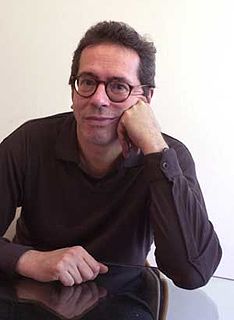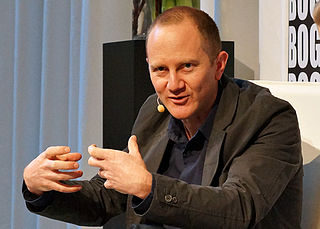A Quote by Cynthia Ozick
In 1952, I had gone to England on a literary pilgrimage, but what I also saw, even at that distance from the blitz, were bombed-out ruins and an enervated society, while the continent was still, psychologically, in the grip of its recent atrocities.
Related Quotes
A thousand years ago the Chinese had an entirely codified kitchen while the French were still gnawing on bones. Chopsticks have been around since the fourth century B.C. Forks didn't show up in England until 1611, and even then they weren't meant for eating but just to hold the meat still while you hacked at it with your knife.
It was Buckley, as my father and sister joined the group and listened to Grandma Lynn’s countless toasts, who saw me. He saw me standing under the rustic colonial clock and stared. He was drinking champagne. There were strings coming out from all around me, reaching out, waving in the air. Someone passed him a brownie. He held it in his hand but did not eat. He saw my shape and face, which had not changed-the hair still parted down the middle, the chest still flat and hips undeveloped-and wanted to call out my name. It was only a moment, and then I was gone.
A few birds flew out from the mountains and glided for a while without sound. Standing out against the sky on high slopes beyond a range of low hills, they saw an endless herd of deer, rendered mute by distance. The landscape was reminiscent of a cardboard cutout, but on a huge scale, which gave the impression they were the ones who had become miniatures...All three of them were equally lost.
While the very inhabitants of New England were thus fabling about the country a hundred miles inland, which was a terra incognitato them,... Champlain, the first Governor of Canada,... had already gone to war against the Iroquois in their forest forts, and penetrated to the Great Lakes and wintered there, before a Pilgrim had heard of New England.
The paradox: there can be no pilgrimage without a destination, but the destination is also not the real point of the endeavor. Not the destination, but the willingness to wander in pursuit characterizes pilgrimage. Willingness: to hear the tales along the way, to make the casual choices of travel, to acquiesce even to boredom. That's pilgrimage -- a mind full of journey.
If hardship brought out the worst in people, the human race wouldn't have survived. Right after 9/11, for instance, the murder rate actually went down in New York City. In World War II during the Blitz, the civilians of London were bombed almost every night for six months, but psychiatric admissions declined.
While my hand is on the stick, my feet on the rudder, and my eyes on the compass, this consciousness, like a winged messenger, goes out to visit the waves below, testing the warmth of water, the speed of wind, the thickness of intervening clouds. It goes north to the glacial coasts of Greenland, over the horizon to the edge of dawn, ahead to Ireland, England, and the continent of Europe, away through space to the moon and stars, always returning, unwillingly, to the mortal duty of seeing that the limbs and muscles have attended their routine while it was gone.
Some things you forget. Other things you never do. But it's not. Places, places are still there. If a house burns down, it's gone, but the place--the picture of it--stays, and not just in my remory, but out there, in the world. What I remember is a picture floating around out there outside my head. I mean, even if I don't think if, even if I die, the picture of what I did, or knew, or saw is still out there. Right in the place where it happened.
I am convinced that pilgrimage is still a bona fide spirit-renewing ritual. But I also believe in pilgrimage as a powerful metaphor for any journey with the purpose of finding something that matters deeply to the traveler. With a deepening of focus, keen prepartion, attention to the path below our feet, and respect for the destination at hand, it is possible to transform, even the most ordinary journey into a sacred journey, a pligrimage.







































